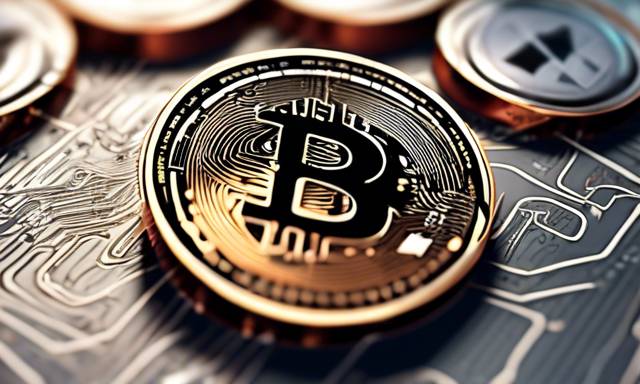Understanding the Privacy Debate Around Monero 🕵️♂️
The ongoing debate about the traceability of Monero has gained attention this year as privacy-focused cryptocurrencies face scrutiny. A prominent member of the Monero community has addressed recent allegations stemming from a leaked presentation by a blockchain analysis firm, which claims that Monero transactions can be traced. This article delves into the details surrounding these claims and the responses from the Monero community.
Monero: A Leader in Cryptocurrency Anonymity 🔒
Monero (XMR) stands out as the most widely recognized privacy coin, specifically designed to protect the identities and transaction details of its users. The growing popularity of privacy coins is largely due to their ability to facilitate transactions that require confidentiality. While many legitimate users seek financial anonymity for various reasons, law enforcement agencies have frequently linked privacy coins to illicit activities, including ransomware payments and dark web transactions.
The Global Stance on Privacy Coins 🌍
Countries like Australia, Japan, and South Korea, along with certain regions in the UAE, have enacted bans on privacy coins. This regulatory environment has prompted many users to consider the implications of their choice of cryptocurrency, particularly in light of ongoing debates over privacy and security.
Chainalysis Claims and Community Pushback 📊
Recently, Chainalysis, a blockchain analytics company, released a video alleging that it could trace Monero transactions dating back to 2021. However, Monero community leader Csilla Brimer has contested these claims, suggesting that the firm utilized its own Monero nodes to track user IP addresses. According to her, Chainalysis’s approach relies on “fake proxy nodes” that harvest metadata, raising doubts about the integrity of their tracing methods.
The Role of Monero Nodes in Anonymity 💻
Monero nodes are devices connected to the internet that operate the Monero software, playing a crucial role in securing transactions by implementing the network’s rules. Users typically have the option to run their own local nodes or connect to external ones, which in this case was leveraged by Chainalysis. Brimer emphasized that to maintain their own privacy, Monero users should ideally set up their own nodes or utilize a privacy-centric web browser like Tor.
Protecting User Privacy: Key Strategies 🔐
Brimer highlighted the importance of maintaining one’s IP address as a crucial component of online privacy. She stated that the best practice for users seeking to protect themselves is to avoid these so-called fake nodes or to use privacy-enhancing tools like Tor. Brimer contended that without access to a user’s IP address, tracing efforts by entities like Chainalysis would be significantly hindered.
Empowering Users to Manage Their Own Nodes ⚙️
In discussing potential solutions, Brimer pointed to a collaborative effort between Monero and Umbrel, a cloud service provider. This partnership enables users to establish their own Monero nodes on personal servers or devices like Raspberry Pi. By running their own nodes, users can transact securely, mitigating the risks associated with external nodes.
Recent Concerns in 2024 and Responses 🗞️
This year, the credibility of Monero’s privacy features has come under fire again. A report by Finnish media suggested that the National Bureau of Investigation (KRP) had successfully tracked XMR transactions. In response to this, Brimer dismissed these assertions, claiming that any success in tracing was likely due to lapses in user security practices during the conversion of Bitcoin to Monero.
Monero’s Current Status in the Market 📈
As of now, Monero maintains its position as the largest privacy coin globally, boasting a market capitalization of approximately $3.1 billion. However, it’s essential to note that its market cap has seen a decline of 3.1% within the last 24 hours. This fluctuation reflects the challenges that privacy coins continue to face amidst ongoing regulatory and market pressures.
Hot Take 🔥
For those involved in the cryptocurrency space, especially in the realm of privacy coins, this year has been pivotal. The ongoing scrutiny surrounding Monero and similar currencies illustrates the delicate balance between user privacy and regulatory oversight. As you navigate these waters, staying informed about both the technical aspects and the overarching legal landscape will be crucial for ensuring your security and anonymity in cryptocurrency transactions.





 By
By
 By
By

 By
By
